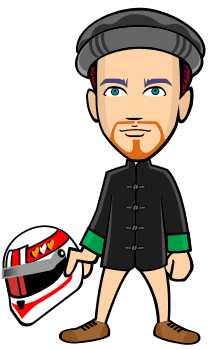The sweet smell of success: the UAE’s boutique coffee revolution
Updated: February 26, 2015 04:14 PM
A business that began with “one roasting machine and a box of cups” has grown into a hugely successful on-the-go coffee company, importing more than 700 tonnes of beans a year and serving 4.5 million cups of coffee last month.
Coffee Planet, a family business established in Dubai, is celebrating its 10th anniversary this year and is about to double in size.
It’s one of an increasing number of homegrown roasteries – including Raw, Boon and Bio Bean –fuelling the coffee boom.
Coffee Planet’s beans are imported from 22 countries, roasted and packed in its Jebel Ali warehouse, then distributed across the country and farther afield.
Rob Jones, from Wales, makes for a slightly unusual boss of a coffee company. He has a background in technology and computer science and worked at a live music venue, but says he never really “got into a career” before joining Coffee Planet at 25.
It was set up by his father, his brother and his business partner Matthew Yorke-Smith, who had the idea of on-the-go coffee.
“It started as a trial. We bought a machine from Seattle and one box of cups. We went to the cup company and asked for a couple of hundred – they said the minimum was 25,000.”
The company set up the machine and cups in an Adnoc petrol station. After a successful trial, it was given the green light to expand into all the stations. As far as Jones is concerned, it was the only real choice for consumers.
“There was Nescafé before us – and if you want to call that coffee, you can,” he laughs. “We had a model whereby we weren’t asking consumers to come to us; we were saying we will go to where you are. Everybody drives in this country, so the first port of call was gas stations.”
Until 2008, the company was buying coffee from overseas. It set up a roastery in Dubai Investments Park, but outgrew the space in two years.
It’s now based in an 835-square-metre space in Jebel Ali, and is in the process of taking on the adjoining warehouse of the same size.
There are now machines in petrol stations, carts and cafes. The company supplies hotels and restaurants and it offers to create particular blends for certain clients.
It has an online shop, a mobile-phone app, a loyalty programme and a new product to rival Nespresso.
After the Nestlé-owned company’s patents began to expire in 2012, other companies started producing capsules and machines that are compatible with its equipment.
Coffee Planet has a new range of eight capsules that vary in flavour, strength and origin. A pack of 10 bought online costs Dh21 (Dh2.10 per cup of coffee). Online prices for Nespresso capsules start at Dh25.50 for 10.
“It’s still about the quality,” Jones says, “at a more affordable price.”
Coffee Planet has also sold franchises in Oman, Malaysia and Pakistan.
To keep up with demand, the warehouse currently has three roasters; one that roasts 120 kilograms at a time; a second that roasts 12kg batches; and a smaller machine used to roast 300-gram samples.
“We receive samples from all over the world. We roast it here, and Matt will analyse the quality and characteristics of the coffees.”
“Matt” is Matt Wade, who’s the company’s secret weapon. He’s the Coffee Planet roastmaster.
He has been roasting for 15 years, after training in coffee shops in New Zealand and London.
He’s a certified “Q Grader”, also known as “cupper”, after completing regular exams with the Coffee Quality Institute.
The exams are not for the average coffee enthusiast. “It’s a week of exams,” Wade says, “testing your smell, taste and your ability to sense acids, salts and sweets. It’s a reaction thing; it’s not like you can learn the information and get better.”




